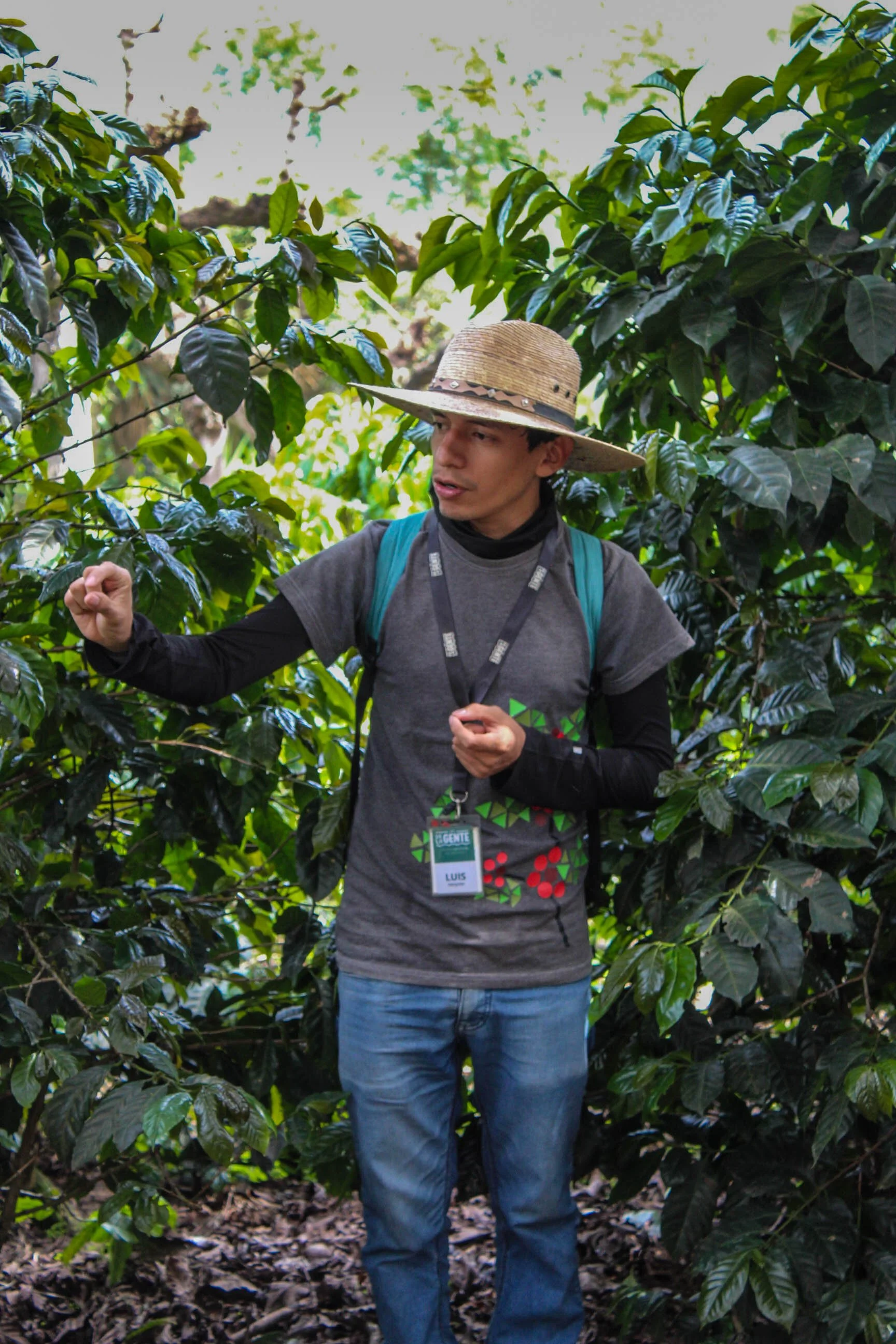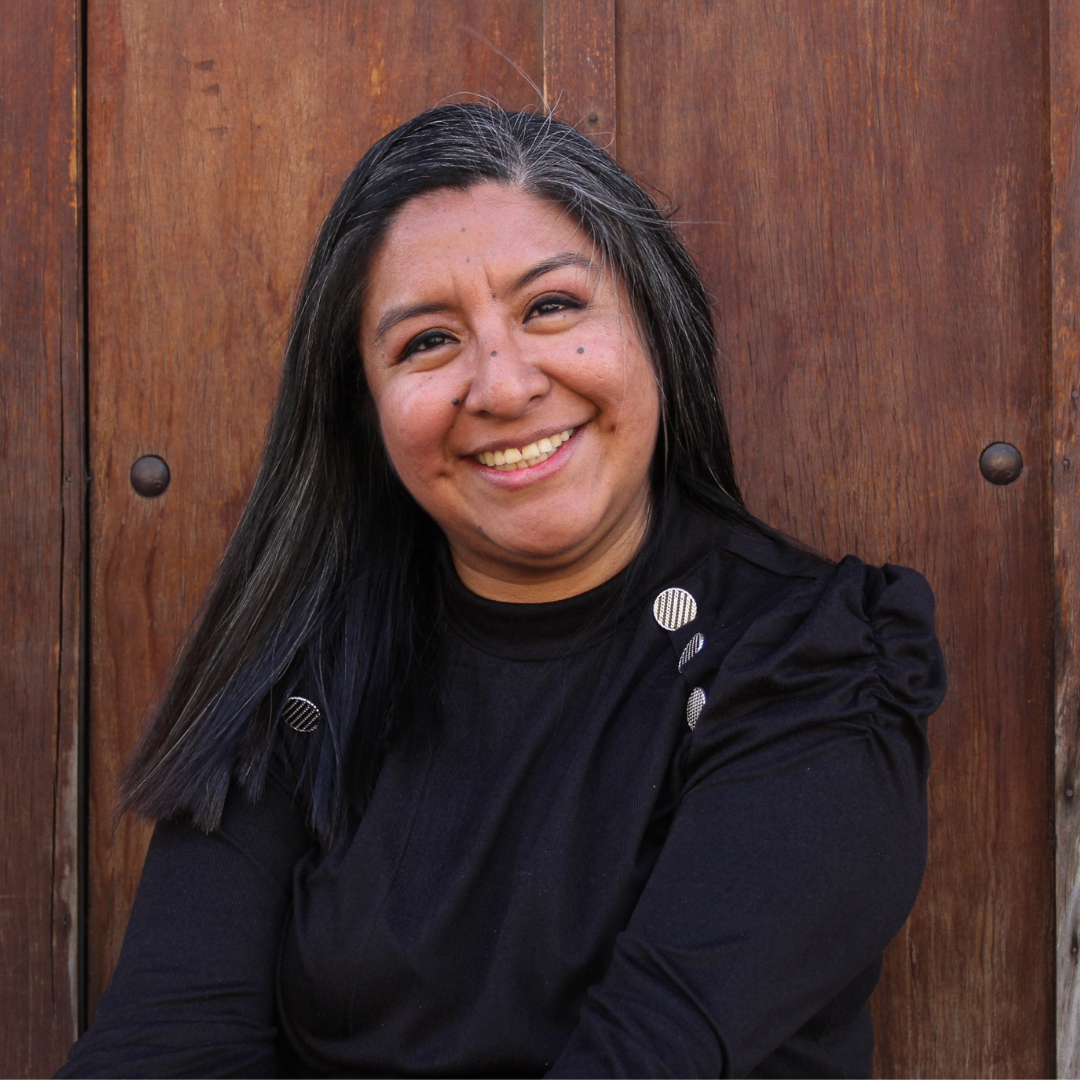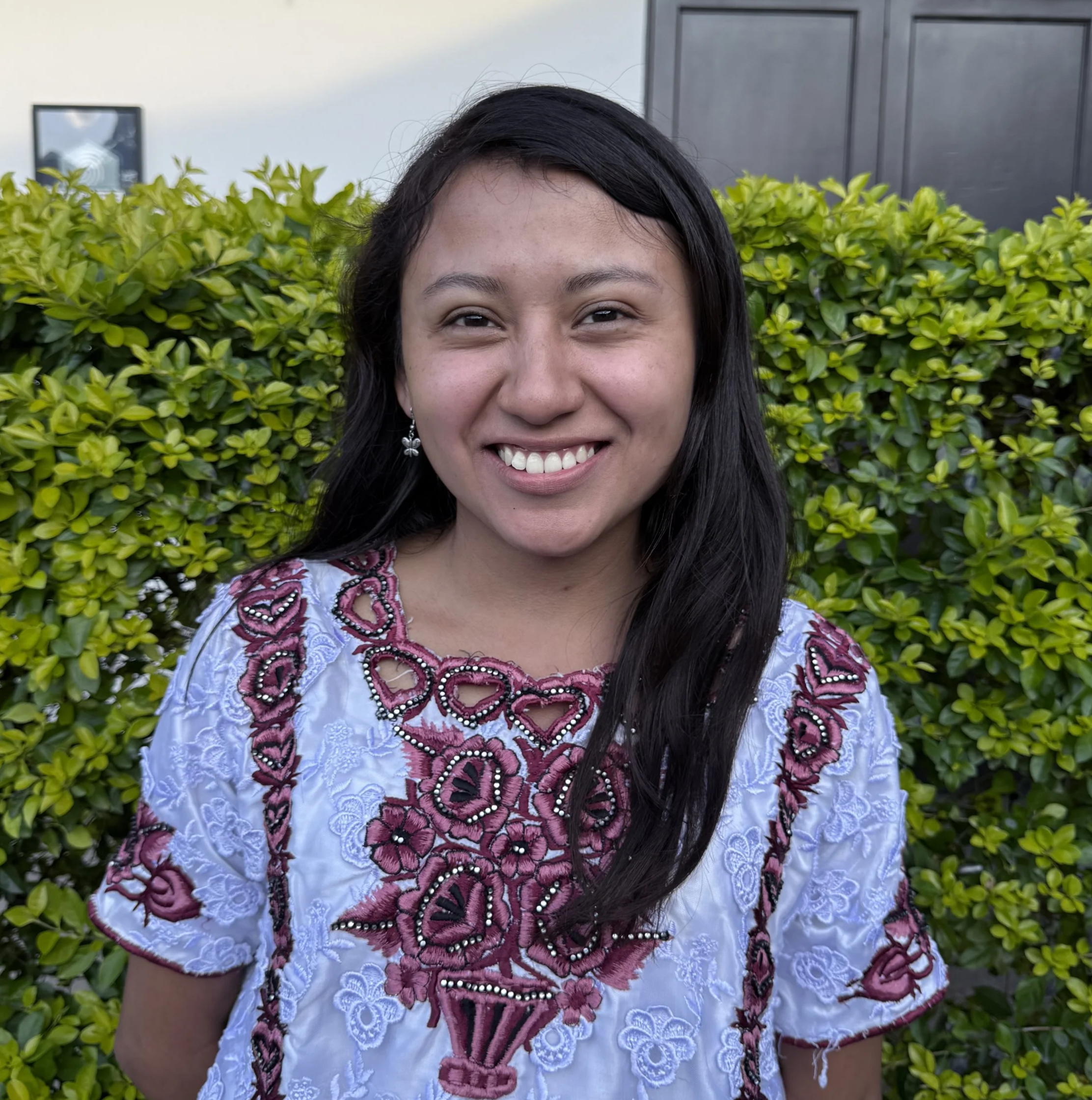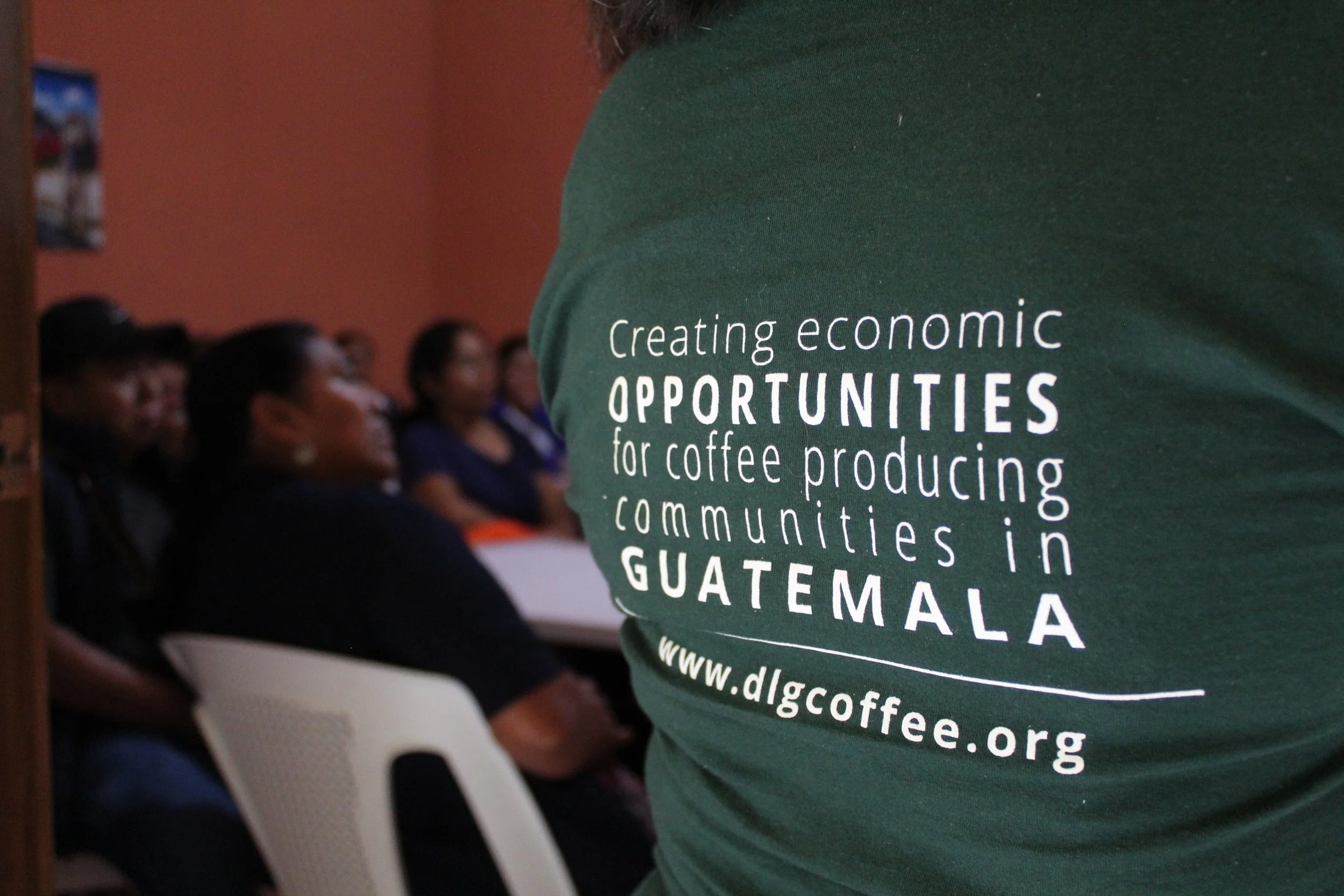Interpreter Roles Set the Stage for Meaningful Moments in Local Tourism
By Aliisa Oake
For De La Gente, the interpreter roles in our Community Tourism Program facilitate communication between tourists and visitors, making every experience something beyond special and unique.
What Turns a Trip Into Something Unforgettable?
It’s not just the landscapes or landmarks, it’s what’s involved in local tourism - the people you meet, the stories you hear, and the moments of connection that stay with you long after you return from your travels.
At the center of the experiences we offer are interpreters. They are the ones who bring voices of the local people to life, bridge cultures, and make shared understanding possible - providing more than just translations of words.
In De La Gente’s coffee tours, cooking classes, and Antigua Day Trips, interpreter roles are vital in shaping visitors’ experiences. Through their thoughtful communication, their position transforms dialogue into rich conversations that honor Guatemala’s culture, and creates space for meaningful connection between visitors and local coffee-producing families. By providing clarity to conversations, stories, and traditions, interpreters help guests truly see Guatemala through the eyes of its people.
The Value of Interpreter Roles
Interpreters play an important role in bridging cultures of visitors and the community members of our partner cooperative in San Miguel Escobar who generously share their stories, skills, and traditions. They ensure that stories, techniques, and traditions are truly understood and respected by visitors, where genuine cultural exchange is made possible. Through our interpreters, genuine cultural exchange becomes possible and heartfelt.
By bridging cultures and connecting people across languages and backgrounds in local tourism, interpreters are able to create moments of belonging, trust, and mutual understanding. Perspectives are enhanced and memorable experiences are created. Visitors don’t just hear what’s being said, but they are able to feel the stories and grasp the significance of Guatemala’s traditions. The clear communication brought by interpreters help visitors appreciate Guatemala for its culture of history, resilience, and strength. At the same time, small-scale coffee communities feel seen, heard, and valued in more meaningful ways.
In many ways, interpreters are cultural ambassadors - sharing local insights, honoring heritage, and facilitating conversations that might otherwise go unspoken. Their work preserves the voice and identity of the communities of De La Gente’s partners, along with opening the door to their own personal and professional growth. For those who step into this role, they have fostered cross-cultural understanding, foster pride, and unlock new educational and economic opportunities.
Personal Insight from De La Gente’s Interpreters
We asked our Community Tourism Program Manager, Claudia Zapeta, some questions for more insight on the importance of De La Gente’s interpreter roles in creating meaningful travel experiences.
What is the most important role that interpreters play in community tourism?
The most important role interpreters play in DLG’s community tourism activities is facilitating communication between hosts and visitors. Thanks to the interpreters’ work as a means of communication, they not only convey words and expressions, but also share anecdotes, emotions, and stories that the coffee growers and cooks share about themselves and/or their families during the activities.
How does having local interpreters promote cross-cultural understanding?
Having local interpreters allows them to share with tourists their knowledge and/or popular Guatemalan customs that are part of daily life in the town or region, thus giving visitors a better understanding of Guatemalan culture.
Have you received feedback from visitors about the value of interpreters, or anything about an interpreter making their visit better?
We’ve received feedback about the interpreters who collaborate on the program through positive comments left by visitors, either through our social media channels or the TripAdvisor platform, and occasionally through direct mail. Participants have told us that the interpreter’s communication support helped them have a conversation with the hosts, and that the information was clear and understandable, allowing them to enjoy the activity and have an unforgettable experience.
We also asked Marissa Tol, one of our interpreters, some questions about her experience with the role.
Why did you decide to fulfill the role of an interpreter with De La Gente?
Because I identified with the principles of community support for local development that De La Gente promotes, community tourism is a management model that creates several advantageous opportunities for the economic, social, and environmental growth of the community where it is implemented, and I wanted to be part of that change.
Has working as an interpreter changed the way you see your community or culture? If yes, how?
Yes, the community of San Miguel Escobar is characterized by being united, hardworking, and honorable. Families know each other and support each other when needed. True cooperative spirit is reflected, and it’s something I would like to see expanded throughout all communities in Guatemala.
Interacting with tourists from different countries unconsciously creates a positive cultural exchange, where one realizes that there are many similarities despite the distance and that culture prevails as long as it is properly cared for and respected.
What do you think visitors gain when they can understand the stories shared by coffee producers, cooking instructors, or their families?
By raising awareness about the value of everyday things, such as a cup of coffee, or sharing a meal with loved ones, the taste of the effort and time that several people must put in, it changes people’s mindsets and makes them appreciate the life and culture of each family or country on a larger scale.
What is the biggest challenge when interacting between two (or more) cultures?
Making yourself understood not only with words, but with gestures, intonation, and even the soul. When a cook, producer, or family from the community shares an experience, they transmit it in a very pure, very charismatic way that comes from the heart. As an interpreter, you must connect with them and thus delve deeper into delivering the right message to share that same feeling with tourists and vice versa.
Has fulfilling the role as an interpreter opened up other opportunities for you?
So many … meeting people with different ways of thinking on a daily basis allows us to expand our knowledge of tourism, history, culture, and success stories that inspire personal and professional growth. It creates bonds of friendship and cooperation between businesses such as travel agencies, tourist destinations, and national and international tourism, forming a network of opportunities to take advantage of.
Coffee Creates Opportunities through Local Tourism
Investing in our communities is an essential part of De La Gente’s mission. Local tourism amplifies our mission of providing more economic opportunities for communities, small-scale coffee producers, and their families. Through our Community Tourism program, the people and the planet go hand-in-hand, where relationships are formed between visitors and the surrounding environment, and local communities directly participate in and benefit from local tourism. We have been able to encourage meaningful economic opportunities for everyone involved, one important way being through interpreter roles.
Interpreter roles offer a chance for individuals to earn a more steady, reliable income right in their own communities, while also gaining valuable knowledge and skills. By investing in interpreters, we’re supporting the development of strong communication skills, public speaking, cross-cultural understanding, and leadership. These individuals learn to guide people from around the world through personable experiences, navigating diverse perspectives and facilitating conversations with sensitivity and respect.
The benefit of interpreter roles extends beyond tourism. Interpreters gain confidence, cultural fluency, and professional skills that open doors to their future endeavors. They become storytellers, connectors, and even cultural ambassadors, representing the pride, warmth, and identity of Guatemala’s communities.
When you see coffee, we see opportunity. The growing interest in Guatemala's coffee scenes, along with the rise of cultural and experience-based travel has created many benefits for local communities. With community tourism, the livelihoods of those involved have been transformed. By working with partner coffee growing communities in Guatemala through tourism, De La Gente has been able to help diversify incomes and create new employment paths, including the impactful role of interpreters. These roles are essential to authentic, respectful, and transparent tourism experiences. Interpreters not only ensure clear communication, but foster understanding, preserve tradition, and empower those who are involved.






